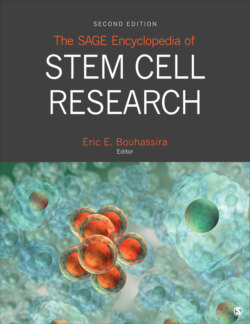Читать книгу The SAGE Encyclopedia of Stem Cell Research - Группа авторов - Страница 364
На сайте Литреса книга снята с продажи.
Efficacy of iASC Therapies
ОглавлениеBecause stem cell therapies of all types are still in their infancy, it is difficult to ascertain a statistical basis for efficacy. In vitro (laboratory) tests and animal studies have shown great promise for both embryonic stems cell (ESC)- and iPSC-based therapies; however, this promise often fails to materialize when transitioned to human studies. Speculation about differences between controlled and uncontrolled manifestations of illness, age, and compliance of participants, and environmental factors are being examined to explain these discrepancies.
The trend in current literature seems to be that while stem cell therapies occasionally show statistically significant improvements in patient pathology, the benefit is often clinically insignificant (not powerful enough to elicit a noticeable improvement for the patient). This is scientifically encouraging but emphasizes ethical questions such as whether the patient benefit warrants the risks—especially considering that patients may bypass traditional therapies to participate in a study. There is the added conundrum that information about the efficacy of stem cell therapies will not be available until more clinical trials are performed.
When deciding whether to participate in an experimental treatment, patient and doctor must together determine if the study serves the patient’s best interests. This requires realistic analysis of risk to benefit, and some are concerned this analysis is not presently feasible due to undue scientific and media excitement over early SCT trials that may have been “over-hyped.” Of particular concern in critics’ eyes is what has come to be called the Bezwoda fraud. In the early 1990s, Werner Bezwoda of the University of the Witwatersrand, South Africa, conducted research using iASC in the treatment of breast cancer. His results were strongly positive, lighting a firestorm in the media and leading to heavy legislation to encourage SCT in the United States and elsewhere.
In 2000 it was discovered that Bezwoda had falsified much of his data. Some ethicists believe the lingering excitement and residual legislation his research spawned creates a false sense of efficacy for SCT, while others feel the scandal broke trust between patient and researcher, making it difficult to find enrollees for new studies. Ironically, both could lead to ethical concerns as pressures mount to fill studies and inadvertently making rational decisions about risk to benefit difficult.
